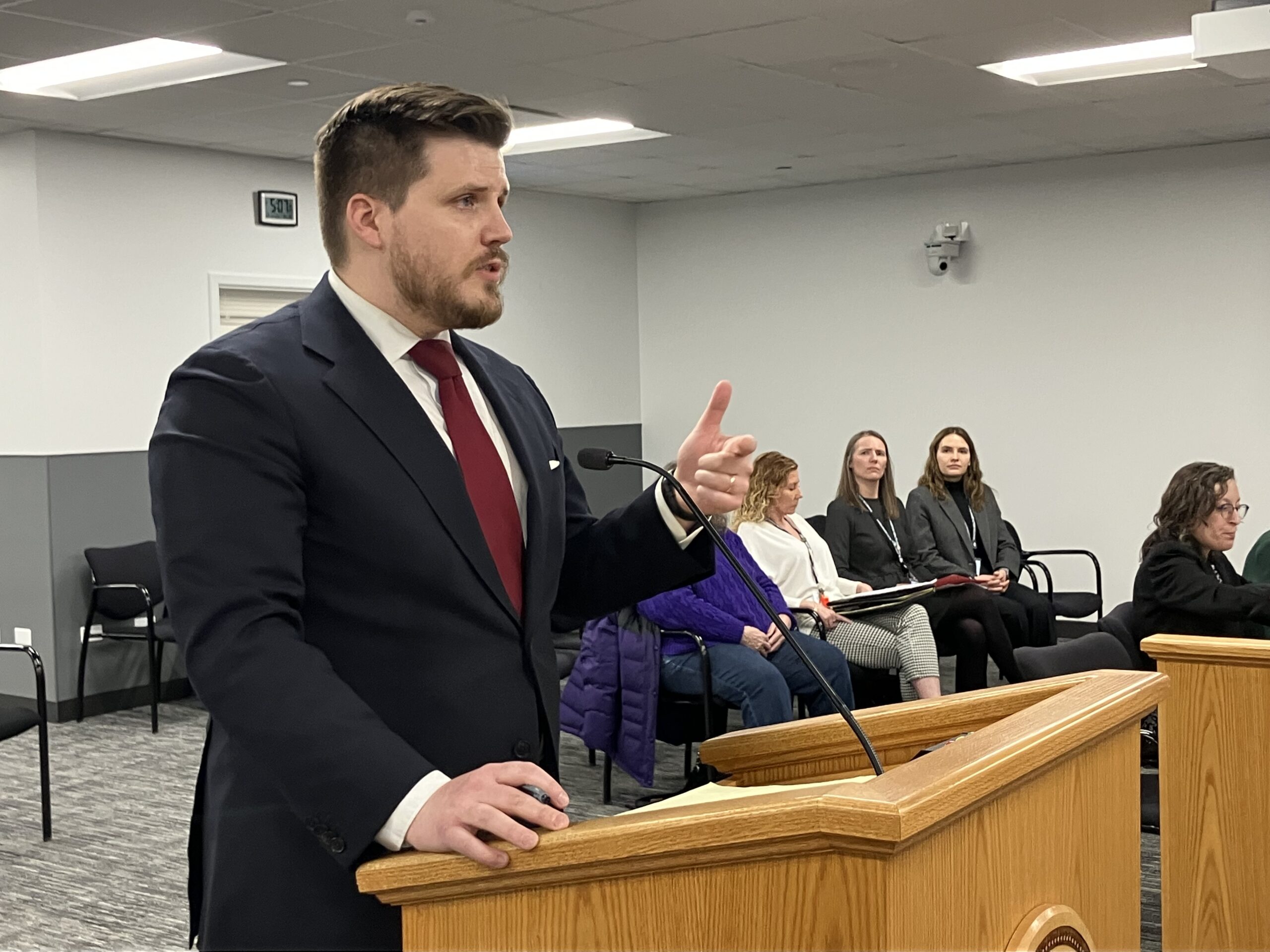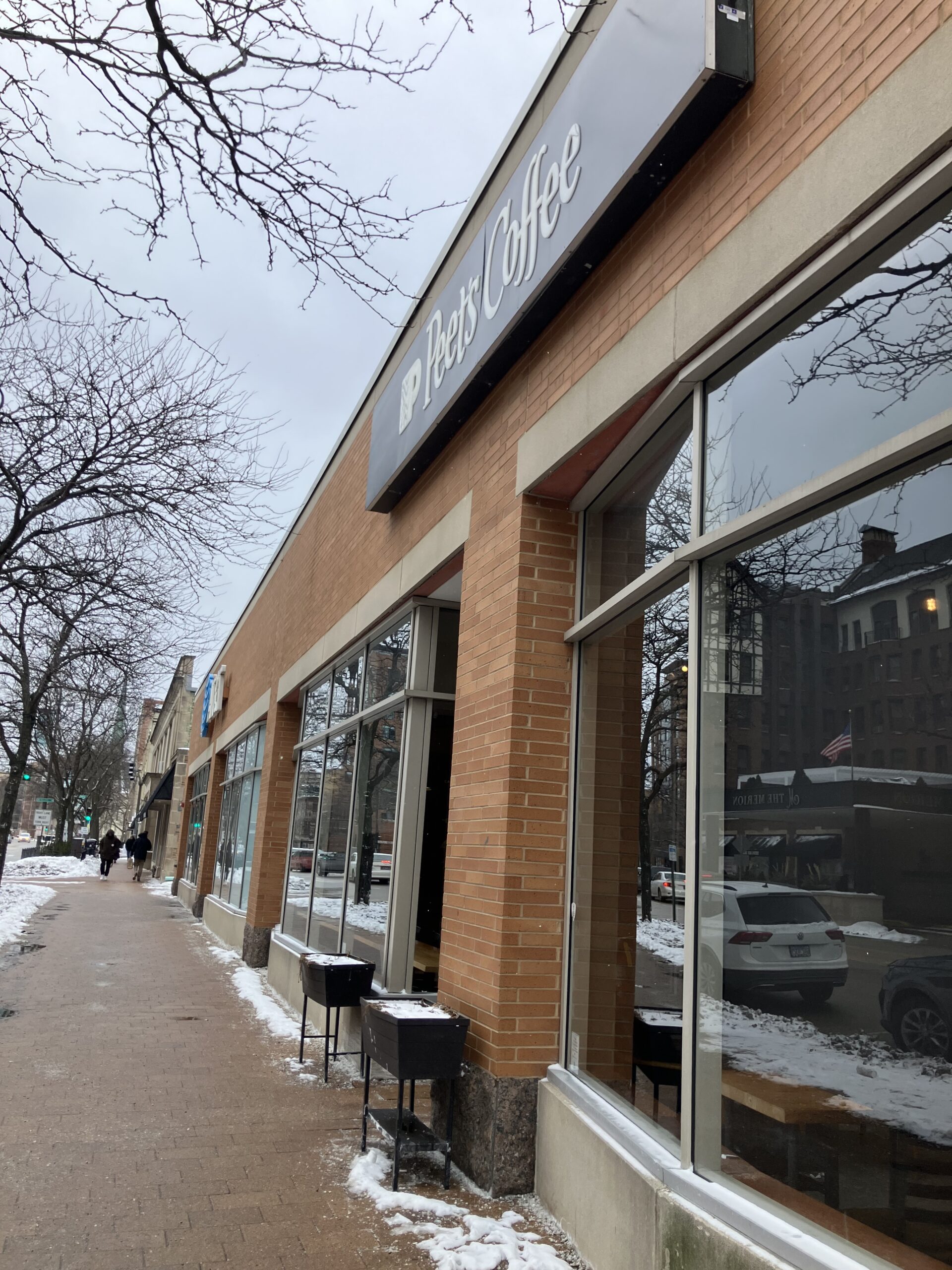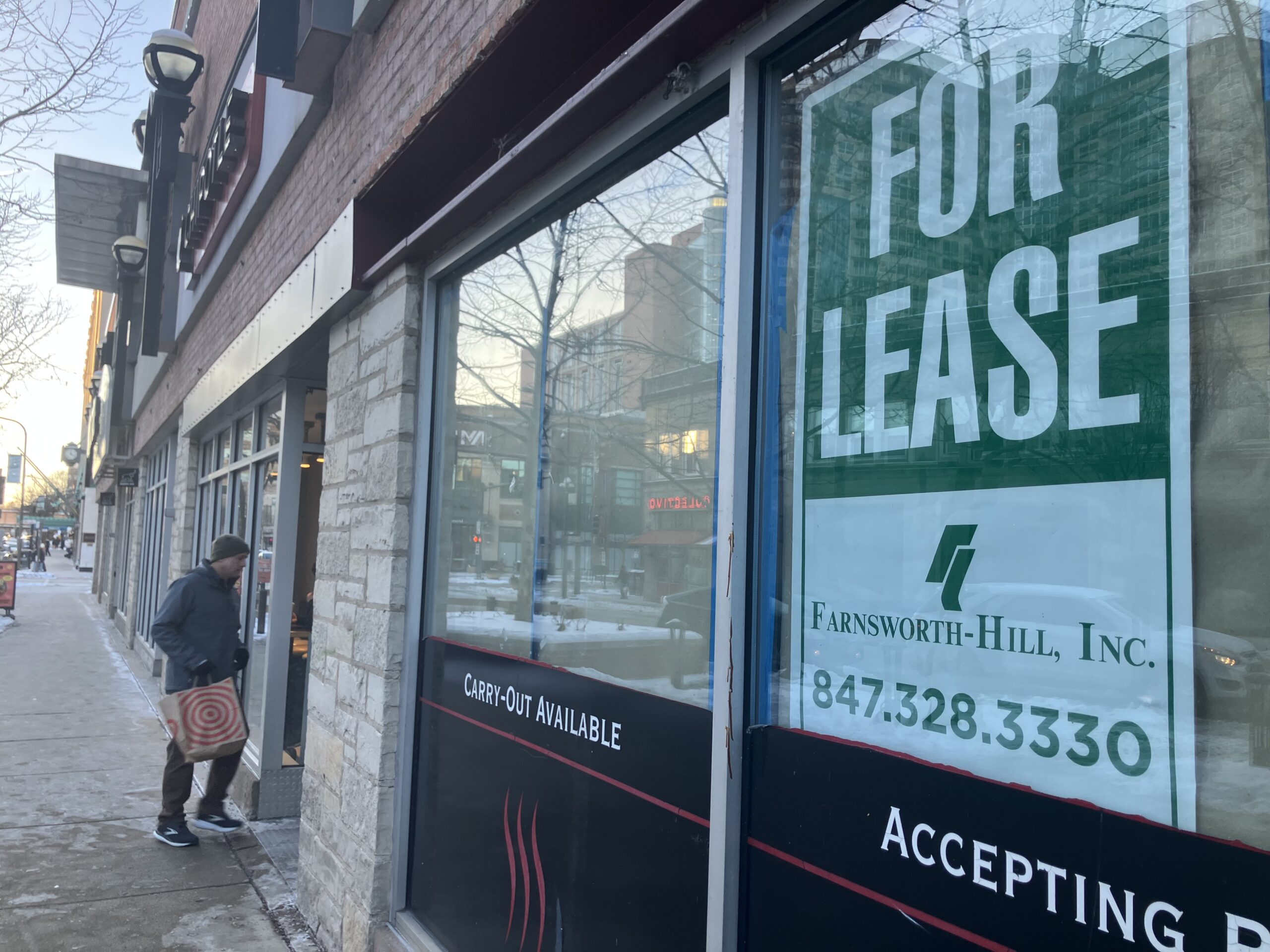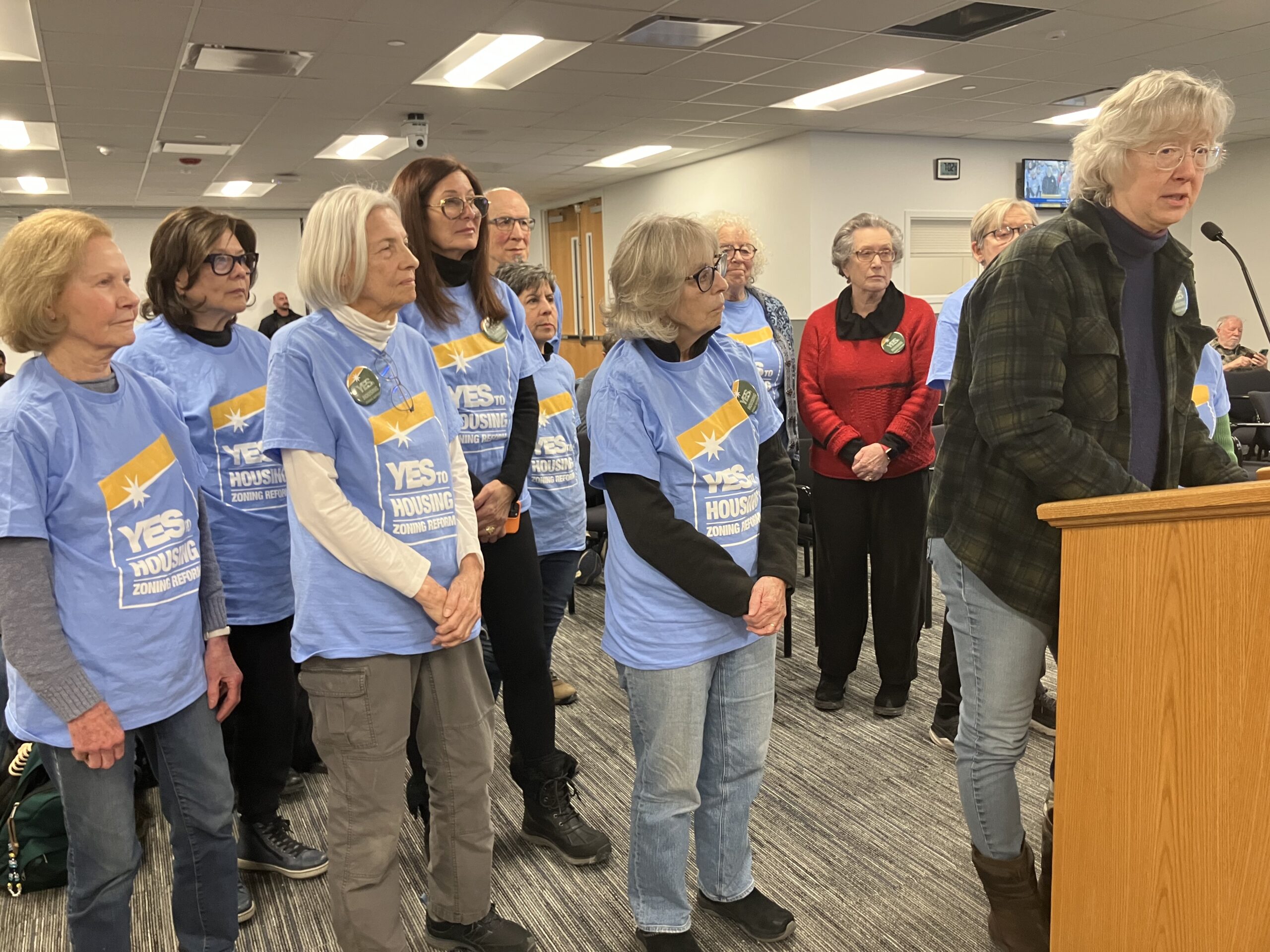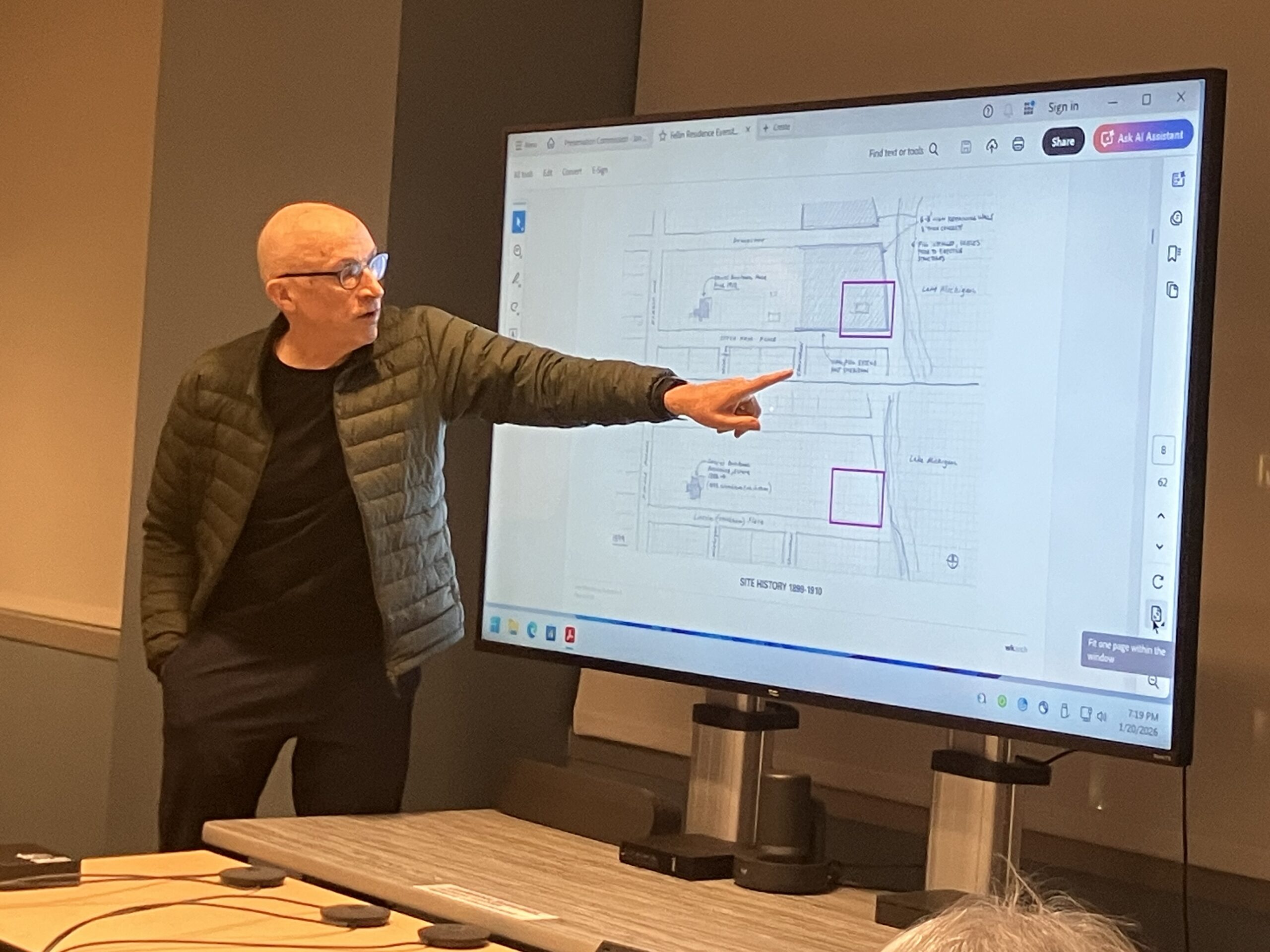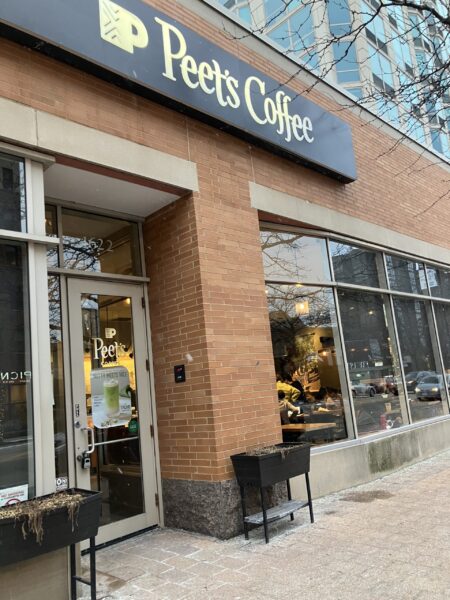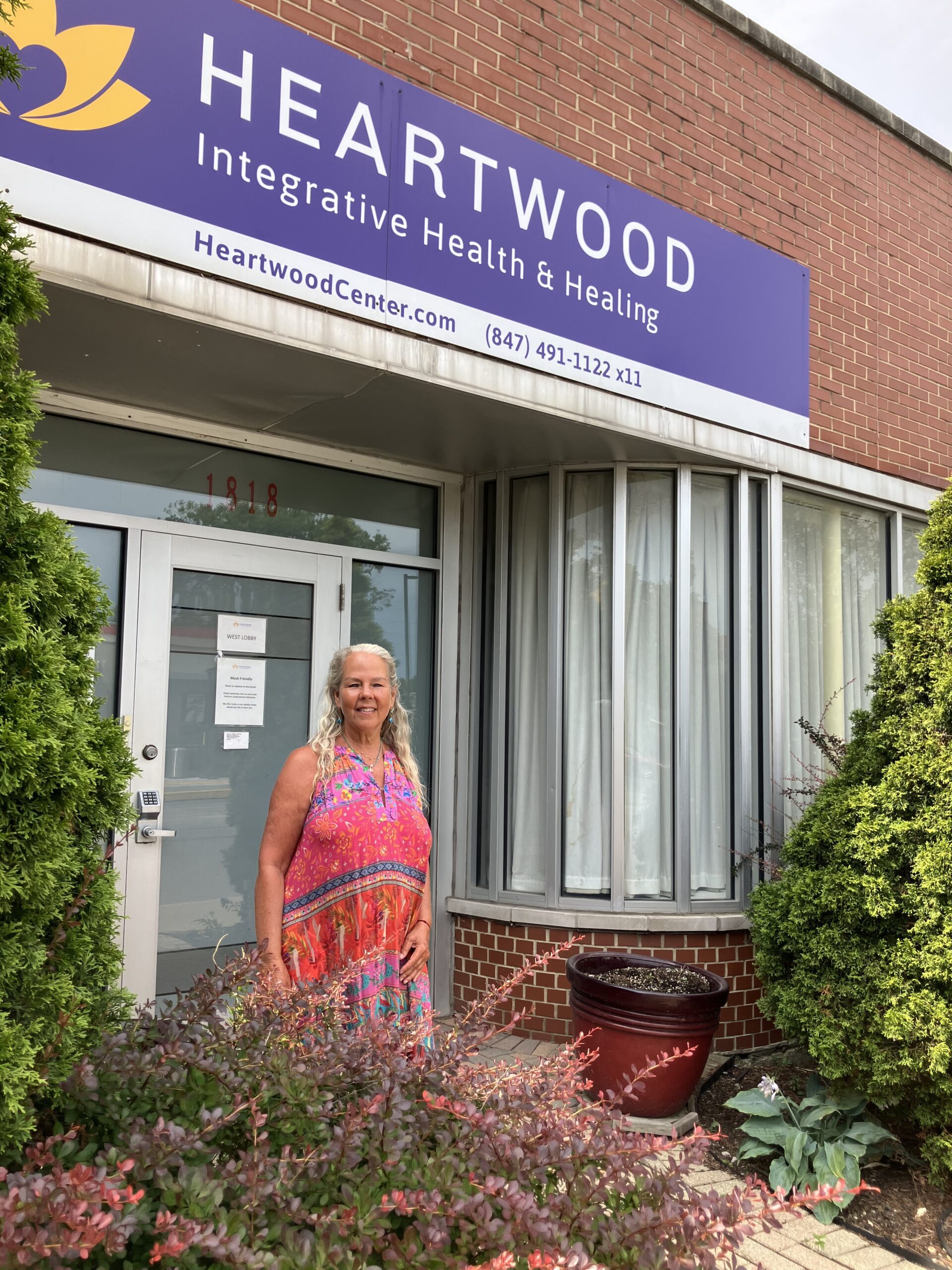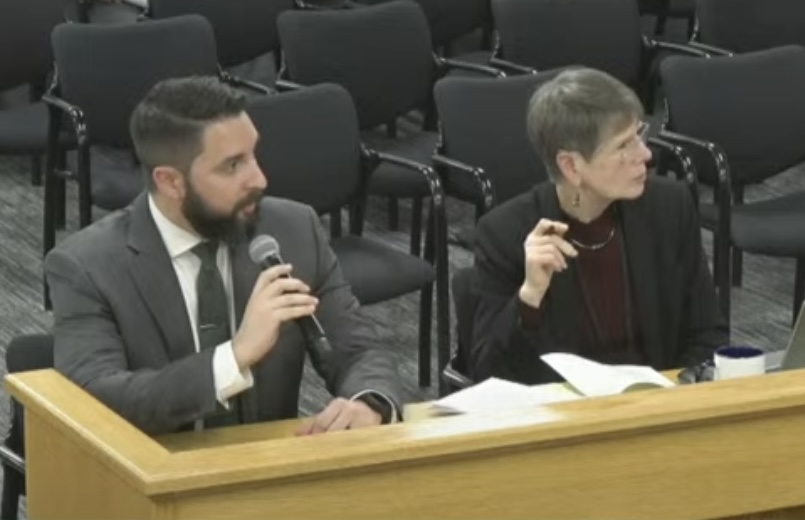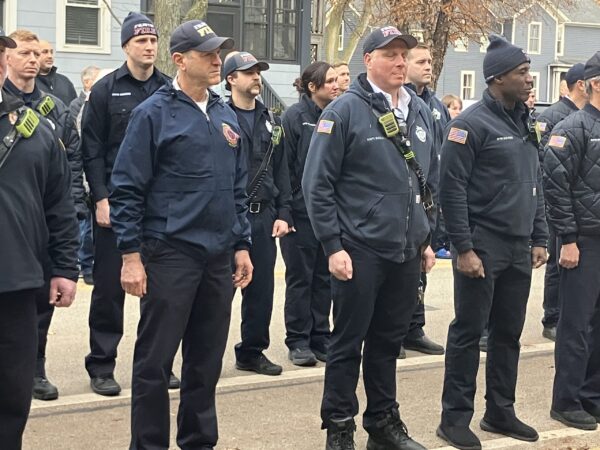Change follows opposition from group led by neighboring wellness center
By Bob Seidenberg
Several weeks after city staff approved a proposed Popeyes location at-1830 Dempster St., the franchisee has voluntarily withdrawn the zoning application and intends to reapply under a different category limited to table service restaurants, according to city officials.
The change comes in the wake of vocal opposition to the fast-food restaurant from a group of residents, led by a neighboring wellness center, who have brought in the city’s former zoning administrator to challenge the proposal and any administrative approvals.
Franchisee Karim Poonja, of Glenview, originally applied to operate the Popeyes as a Type 2 restaurant, and received approval from the city’s Community Development Department on June 30 under an “administrative review use.
This category is normally only subject to internal scrutiny and approval by staff, but applications can be elevated to require a special use permit based on the city’s analysis or an appeal by a third party.
City spokesperson Cynthia Vargas confirmed via email on Friday that Poonja has withdrawn his approved application, with an “intent to submit a revised proposal as a Type 1 restaurant.” Vargas noted that Type 1 “requires a different set of operational characteristics than a Type 2 restaurant.”
As defined in the city’s zoning code, Type 1 restaurants must both “require customers to order at a table, booth, or dining counter with service by a waiter” for on-site dining and “require the use of reusable (nondisposable) flatware and dishware.” Type 2 covers all other restaurants that don’t fit the Type 1 definition.
Poonja did not respond to a request for comment from the RoundTable. Councilmember Krissie Harris, whose Second Ward includes the site, told the RoundTable on Saturday that she’d been informed of the change but declined to comment further.
Pushback from Heartwood Center
This withdrawal and reapplication would circumvent a planned appeal from an opposition group led by the Heartwood Center, a health and wellness collective at 1818 Dempster St. that neighbors the Popeyes site. The center had brought in a consultant to challenge the city’s internal approval of the Popeyes through an administrative review instead of deferring the decision to a public special use permitting process, as Heartwood and some other residents had requested.
“From what I can see, none of the intent was followed, and the process that’s outlined in the code was not fully followed,” said Melissa Klotz, Heartwood’s consultant who also served as the city’s zoning administrator between 2019 and 2024.
In that role, Klotz wrote a staff memo to City Council in April 2021 explaining when the administrative review process should be used versus deferring to the special use process. The City Council adopted the ordinance creating administrative review uses on May 10, 2021.
The typical special use process would entail a public hearing before the city’s Land Use Commission, which would make a recommendation to the council for final determination. The application would need to pass votes at two separate council meetings to receive full approval.
Heartwood and others pushed the city to deny the application or hand it over to the Land Use Commission for review in an online petition that reportedly received at least 350 signatures.
The petition argued that this situation “is more than a single project — it’s part of a broader trend that is saturating our neighborhoods with corporate fast food,” claiming that fast-food chains “displace small local businesses” and “contribute to environmental degradation.”
“We want community business development of healthy food options, local entrepreneurs and community-serving businesses and centers,” the petition said. “For years, work has been done to change the nature of this intersection by adding creative arts, healing-centered and locally owned businesses. Popeyes would undermine those efforts.”
Harris told residents in a June 24 newsletter that she felt the concerns raised over the project at a June 17 ward meeting could effectively be addressed at the administrative level by staff.
“While I fully support the presence of small, minority-owned, independent restaurants and locally-owned shops, as they are essential to the character and economic vitality of our West Village, I believe we should approach zoning and permitting with clear and consistent criteria rather than making discretionary, case-by-case decisions,” she wrote.
“I believe it would be in the community’s best interest not to send this matter to Land Use at this time. I trust that our City staff will be able to thoughtfully incorporate the concerns we’ve discussed.”
The administrative review use category, Klotz wrote in her 2021 memo, was designed to provide “a staff review level with the option to approve certain uses if they are not detrimental to the surrounding neighborhood and are consistent with the City’s goals and policies.” The four most common applications processed under the category are for ground-floor offices, ground-floor financial institutions, commercial indoor recreation facilities and Type 2 restaurants.
Fast-food restaurants like Popeyes are generally classified as Type 2 restaurants under the zoning code and are often handled through staff review. But in considering an administrative review use, city policy calls for officials to defer to the special use process if an application fails to meet any one of the five standards of approval, including finding that the new business:
- Won’t cause a negative cumulative effect on surrounding properties or the immediate neighborhood.
- Won’t interfere with or diminish property values in the area.
- Won’t cause undue traffic, parking congestion or noise.
- Complies with the purposes and policies of the current comprehensive plan.
- Is appropriate in the context of the nearby surrounding vacancy rate, public health concerns and other nearby uses.
“So if staff agrees that all of those standards are met, then legally, they can approve it,” said Klotz, who as zoning administrator regularly ruled on such requests. “But if any one standard is not met, then they have to either deny it or defer it. So, by approving it, they’re saying, ‘Yes, all of those things are fine, all of those standards are met.’”
The RoundTable filed a public records request with the city for the zoning administrator’s analysis of the Popeyes application and other documents related to the issue. A response from the City Clerk’s office on Friday said the records requested do not exist.
Even at the administrative review level, certain steps need to be taken, Klotz wrote in her 2021 memo. Upon receiving an application, staff would send the issue to the city’s Design & Appearance Review Committee, which hasn’t met since June 2022 and is functionally dissolved at this point.
Equally important to the process, Klotz said, is for an email to go out to groups and residents on the review committee’s list saying, “Hey, here’s what’s being reviewed.”
Following that, a final determination would be made by the zoning administrator, the community development director and the city manager or their designee.
Klotz said that, from what she can tell, “code was not fully followed in the Popeyes case.”
“There were roughly 350 people who had concerns or opposed it, and the fastest and simplest thing at that point for staff to do for all parties involved would have been to defer it to the special use process,” she said in a phone interview. “But they didn’t.”
Vargas, the city’s spokesperson, wrote in her statement that staff have “consistently reviewed Type 2 restaurant applications administratively, which is permitted under the Zoning Code when it is found that the proposed use meets the applicable standards of approval.”
Popeyes with table service?
The city reached out to Heartwood late Thursday to tell the center that Poonja had withdrawn his Type 2 application and intends to reapply as a Type 1 restaurant.
“Our belief is that it’s not realistically feasible for a Popeyes franchise to operate as a Type 1 restaurant,” Klotz said in reaction to this change. She added that the opposition group already believes “the staff interpretation will again be incorrect” for the Type 1 application, and that they “intend to appeal that decision if and when it is made.”
The proposed site is in the C-1 commercial district, which requires Type 2 restaurants to apply as administrative review uses but allows Type 1 restaurants as a “permitted use,” meaning that no special zoning approval is needed at any level for Type 1 applications.
Functionally, that means that if the city deems the revised Popeyes application to fit the requirements for a Type 1 restaurant, it could be approved automatically and bypass both the administrative review use and special use processes.
Meanwhile, Nancy Floy, the Heartwood Center’s founder and director, said the center would face an uncertain future if the fast-food restaurant is approved.
“We would lose nearly half of our monthly income in members’ fees, and this places the Heartwood in serious jeopardy,” she said.
The tenant organizations who occupy 10 offices on the west side of the Heartwood building, which would face the restaurant parking lot, have said they plan to leave because of the anticipated noise and smell, according to Floy. They include nurse practitioners who treat neighborhood residents who don’t have insurance.
The tenant organizations who occupy 10 offices on the west side of the Heartwood building, which would face the restaurant parking lot, have said they plan to leave because of the anticipated noise and smell, according to Floy. They include nurse practitioners who treat neighborhood residents who don’t have insurance.
“I’m trying to get them not to leave now because they’re so important to us,” she said, showing a visitor around the offices.
Heartwood has played a key role in the revitalization of the Dempster-Dodge area since moving its offices there 15 years ago. The area was at a low ebb then, with the Evanston Plaza shopping center to the west in receivership.
“I’m trying to get them not to leave now because they’re so important to us,” she said, showing a visitor around the offices.
Heartwood has played a key role in the revitalization of the Dempster-Dodge area since moving its offices there 15 years ago. The area was at a low ebb then, with the Evanston Plaza shopping center to the west in receivership.

